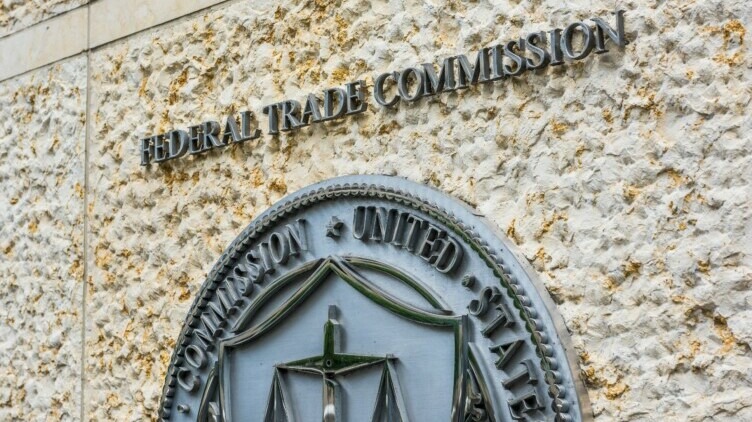Federal Trade Commission Partners with Latin American Countries to Combat Fraud
By SCARS Editorial Team – Society of Citizens Against Relationship Scams Inc., and the Federal Trade Commission
The U.S. Federal Trade Commission Enters Into A Multilateral Agreement Enhances Consumer Protection Cooperation With Chile, Colombia, Mexico, And Peru
The Federal Trade Commission signed a cooperation agreement with the consumer protection authorities of the four Latin American countries —Chile, Colombia, Mexico and Peru – to combat fraud both inside and outside the United States.
The Multilateral Memorandum of Understanding (MMOU) promotes cooperation across Latin America, including information-sharing to further investigations and policy development, as well as other types of assistance on cross-border enforcement matters.
“This multilateral MOU with our partners from Chile, Colombia, Mexico and Peru sends a message of our shared commitment to protect consumers from cross-border fraud, deception, and other illegal practices,” said Maria Coppola, Director of the FTC’s Office of International Affairs. The MOU also offers a blueprint for extending cooperation even further through the region by providing a mechanism for others to join this MOU, which will bolster our efforts to fight fraud wherever it might occur.”
Low-cost online communications allow scammers to target consumers regardless of where they live. The increasingly global nature of commerce—and fraud—poses an enforcement challenge for consumer protection authorities around the world. From 2019 to 2022, fraud reports against companies in these Latin American countries more than doubled, from 6,103 to 12,869. At the same time, total losses reported by consumers skyrocketed—from $39.4 million in 2019 to $237.9 million in 2022. Reports about online shopping were the top complaint during this same period, with losses increasing from $3.8 million in 2019 to $49.5 million in 2022. Social media was the top contact method consumers cited at 41 percent of reports in 2022.
These four countries represent about 225 million people and combined make up the eighth biggest economy in the world.
In signing the MMOU, the FTC and consumer protection authorities in these countries agreed to cooperate in investigations related to violations of consumer protection laws. Specifically, the MMOU encourages participants to:
- Share complaints submitted by consumers – this includes reports placed through SCARS AnyScam.com (SCARS is an FTC Sentinel reporting partner);
- Provide investigative assistance, with appropriate safeguards, including sharing of information relating to defendants, their assets and/or their deceptive conduct;
- Coordinate enforcement actions against cross-border violations of law;
- Provide other practical case assistance, where appropriate, in the enforcement of consumer protection laws, such as gathering evidence;
- Participate in econsumer.gov, which allows consumers from around the world to report fraud and provides consumer protection agencies around the world with access to important data about potential violations; and
- Cooperate on non-investigatory matters such as exchanging approaches to consumer protection policy issues and participating in staff exchanges, joint training programs and workshops.
Notably, the MMOU includes a mechanism for allowing other consumer protection authorities to join in the future.
The Commission voted 4-0 to authorize the FTC Chair to sign the MOU. The Commission vote closed on a date prior to Commissioner Christine S. Wilson’s departure from the agency.
SCARS Commentary
SCARS believes that this is a major step in developing multinational networks for the sharing of information and to enable better law enforcement cooperation.
This is also expected to have a significant impact on the growing scope of Latin American Scammer organizations from Mexico to Brazil which are every bit as large as Nigerian criminal organizations.
First, it will help to protect consumers from cross-border fraud and deception. In today’s globalized economy, scammers can easily target consumers in other countries. This agreement will allow the FTC and its counterparts in Chile, Colombia, Mexico, and Peru to share information and coordinate investigations to crack down on cross-border fraud.
Second, the agreement will help to promote fair competition in the marketplace. By working together, the FTC and its counterparts in Chile, Colombia, Mexico, and Peru can better identify and address anti-competitive practices that harm consumers.
Third, the agreement will help to strengthen consumer rights and protections across the region. By sharing best practices and working to harmonize consumer protection laws, the FTC and its counterparts in Chile, Colombia, Mexico, and Peru can help to ensure that consumers have the same level of protection regardless of where they live.
The multilateral agreement is a positive step forward for consumer protection in the Americas. It is a sign of the commitment of the FTC and its counterparts in Chile, Colombia, Mexico, and Peru in working together to protect consumers from cross-border fraud, promote fair competition, and strengthen consumer rights and protections.
Here are some specific examples of how the multilateral agreement could be used to protect consumers:
- Cross-border fraud: The FTC could work with its counterparts in Chile, Colombia, Mexico, and Peru to investigate and prosecute cross-border fraud schemes. For example, if a scammer in Colombia is targeting consumers in the United States, the FTC could work with the Colombian authorities to shut down the scam and recover money for victims.
- Anti-competitive practices: The FTC could work with its counterparts in Chile, Colombia, Mexico, and Peru to identify and address anti-competitive practices that harm consumers. For example, if a company is engaging in price fixing or collusion in multiple countries, the FTC could work with the authorities in those countries to investigate and prosecute the company.
- Consumer rights and protections: The FTC could work with its counterparts in Chile, Colombia, Mexico, and Peru to share best practices and work to harmonize consumer protection laws. For example, the FTC could share its expertise on data privacy and security with its counterparts in the other countries.
The multilateral agreement is a valuable tool that can be used to protect consumers in the Americas. It is important for consumers to be aware of the agreement and to report any suspected violations to the FTC or their local consumer protection authority.
More:
- MOU between FTC and Consumer Protection Authorities of Chile, Colombia, Mexico, and Peru
- Scam Call Centers in Mexico: A Growing Problem (romancescamsnow.com)
- Mexico Is Now The New Scam Battleground (romancescamsnow.com)
- Blanca Arellano – A Murdered Scam Victim’s Story (romancescamsnow.com)
- FTC Takes Action Against Unsolicited Communications (scamsnow.com)
- U.S. FCC Imposes Record Penalty Against Transnational Illegal Robocalling Operation (scamsnow.com)
- Illegal Robocallers – People Hate Them (scamsnow.com)
SCARS Resources:
- For New Victims of Relationship Scams newvictim.AgainstScams.org
- Subscribe to SCARS Newsletter newsletter.againstscams.org
- Sign up for SCARS professional support & recovery groups, visit support.AgainstScams.org
- Find competent trauma counselors or therapists, visit counseling.AgainstScams.org
- Become a SCARS Member and get free counseling benefits, visit membership.AgainstScams.org
- Report each and every crime, learn how to at reporting.AgainstScams.org
- Learn more about Scams & Scammers at RomanceScamsNOW.com and ScamsNOW.com
- Global Cyber Alliance ACT Cybersecurity Tool Website: Actionable Cybersecurity Tools (ACT) (globalcyberalliance.org)
- Self-Help Books for Scam Victims are at shop.AgainstScams.org
- Donate to SCARS and help us help others at donate.AgainstScams.org
- Worldwide Crisis Hotlines: International Suicide Hotlines – OpenCounseling : OpenCounseling
- Campaign To End Scam Victim Blaming – 2024 (scamsnow.com)
More ScamsNOW.com Articles
-/ 30 /-
What do you think about this?
Please share your thoughts in a comment below!
SCARS LINKS: AgainstScams.org RomanceScamsNOW.com ContraEstafas.org ScammerPhotos.com Anyscam.com ScamsNOW.com
reporting.AgainstScams.org support.AgainstScams.org membership.AgainstScams.org donate.AgainstScams.org shop.AgainstScams.org
youtube.AgainstScams.org linkedin.AgainstScams.org facebook.AgainstScams.org
Important Information for New Scam Victims
- Please visit www.ScamVictimsSupport.org – a SCARS Website for New Scam Victims & Sextortion Victims.
- SCARS Institute now offers its free, safe, and private Scam Survivor’s Support Community at www.SCARScommunity.org – this is not on a social media platform, it is our own safe & secure platform created by the SCARS Institute especially for scam victims & survivors.
- SCARS Institute now offers a free recovery learning program at www.SCARSeducation.org.
- Please visit www.ScamPsychology.org – to more fully understand the psychological concepts involved in scams and scam victim recovery.
If you are looking for local trauma counselors, please visit counseling.AgainstScams.org
If you need to speak with someone now, you can dial 988 or find phone numbers for crisis hotlines all around the world here: www.opencounseling.com/suicide-hotlines
Statement About Victim Blaming
Some of our articles discuss various aspects of victims. This is both about better understanding victims (the science of victimology) and their behaviors and psychology. This helps us to educate victims/survivors about why these crimes happened and not to blame themselves, better develop recovery programs, and help victims avoid scams in the future. At times, this may sound like blaming the victim, but it does not blame scam victims; we are simply explaining the hows and whys of the experience victims have.
These articles, about the Psychology of Scams or Victim Psychology – meaning that all humans have psychological or cognitive characteristics in common that can either be exploited or work against us – help us all to understand the unique challenges victims face before, during, and after scams, fraud, or cybercrimes. These sometimes talk about some of the vulnerabilities the scammers exploit. Victims rarely have control of them or are even aware of them, until something like a scam happens, and then they can learn how their mind works and how to overcome these mechanisms.
Articles like these help victims and others understand these processes and how to help prevent them from being exploited again or to help them recover more easily by understanding their post-scam behaviors. Learn more about the Psychology of Scams at www.ScamPsychology.org
SCARS INSTITUTE RESOURCES:
If You Have Been Victimized By A Scam Or Cybercrime
♦ If you are a victim of scams, go to www.ScamVictimsSupport.org for real knowledge and help
♦ SCARS Institute now offers its free, safe, and private Scam Survivor’s Support Community at www.SCARScommunity.org/register – this is not on a social media platform, it is our own safe & secure platform created by the SCARS Institute especially for scam victims & survivors.
♦ Enroll in SCARS Scam Survivor’s School now at www.SCARSeducation.org
♦ To report criminals, visit https://reporting.AgainstScams.org – we will NEVER give your data to money recovery companies like some do!
♦ Follow us and find our podcasts, webinars, and helpful videos on YouTube: https://www.youtube.com/@RomancescamsNowcom
♦ Learn about the Psychology of Scams at www.ScamPsychology.org
♦ Dig deeper into the reality of scams, fraud, and cybercrime at www.ScamsNOW.com and www.RomanceScamsNOW.com
♦ Scam Survivor’s Stories: www.ScamSurvivorStories.org
♦ For Scam Victim Advocates visit www.ScamVictimsAdvocates.org
♦ See more scammer photos on www.ScammerPhotos.com
You can also find the SCARS Institute’s knowledge and information on Facebook, Instagram, X, LinkedIn, and TruthSocial
Psychology Disclaimer:
All articles about psychology and the human brain on this website are for information & education only
The information provided in this and other SCARS articles are intended for educational and self-help purposes only and should not be construed as a substitute for professional therapy or counseling.
Note about Mindfulness: Mindfulness practices have the potential to create psychological distress for some individuals. Please consult a mental health professional or experienced meditation instructor for guidance should you encounter difficulties.
While any self-help techniques outlined herein may be beneficial for scam victims seeking to recover from their experience and move towards recovery, it is important to consult with a qualified mental health professional before initiating any course of action. Each individual’s experience and needs are unique, and what works for one person may not be suitable for another.
Additionally, any approach may not be appropriate for individuals with certain pre-existing mental health conditions or trauma histories. It is advisable to seek guidance from a licensed therapist or counselor who can provide personalized support, guidance, and treatment tailored to your specific needs.
If you are experiencing significant distress or emotional difficulties related to a scam or other traumatic event, please consult your doctor or mental health provider for appropriate care and support.
Also read our SCARS Institute Statement about Professional Care for Scam Victims – click here
If you are in crisis, feeling desperate, or in despair, please call 988 or your local crisis hotline – international numbers here.
More ScamsNOW.com Articles
A Question of Trust
At the SCARS Institute, we invite you to do your own research on the topics we speak about and publish. Our team investigates the subject being discussed, especially when it comes to understanding the scam victims-survivors’ experience. You can do Google searches, but in many cases, you will have to wade through scientific papers and studies. However, remember that biases and perspectives matter and influence the outcome. Regardless, we encourage you to explore these topics as thoroughly as you can for your own awareness.

























![NavyLogo@4x-81[1] Federal Trade Commission Partners with Latin America To Combat Fraud](https://scamsnow.com/wp-content/uploads/2025/04/NavyLogo@4x-811.png)
![scars-institute[1] Federal Trade Commission Partners with Latin America To Combat Fraud](https://scamsnow.com/wp-content/uploads/2025/04/scars-institute1.png)

![niprc1.png1_-150×1501-1[1] Federal Trade Commission Partners with Latin America To Combat Fraud](https://scamsnow.com/wp-content/uploads/2025/04/niprc1.png1_-150x1501-11.webp)